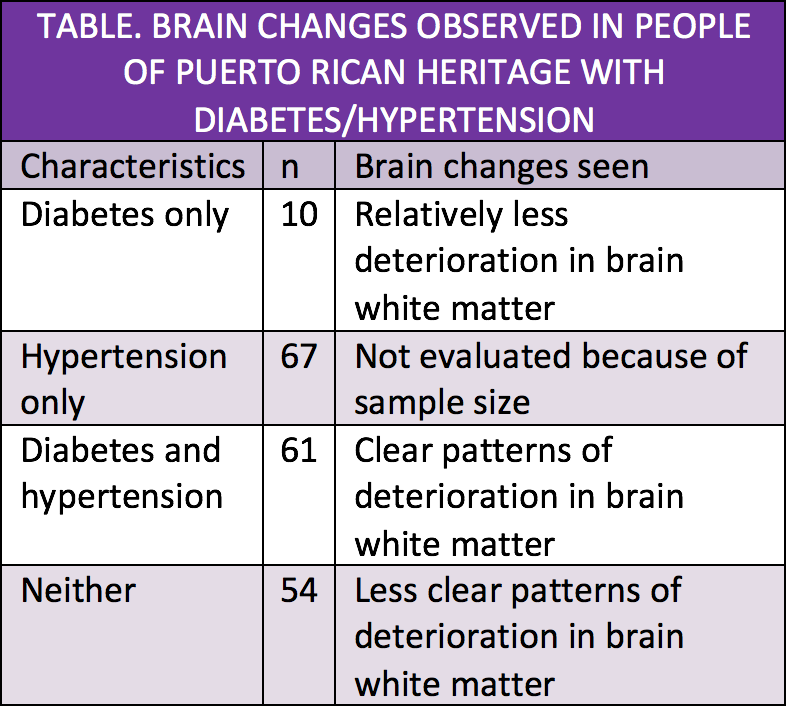High Rate of Diabetes and High Blood Pressure in Puerto Ricans Correlated with Increased Brain Atrophy
According to a study published in Neurology, individuals with Puerto Rican heritage and a combination of a high rate of diabetes and hypertension had increased rates of lower brain volumes. This analysis reviewed data from 192 Puerto Rican individuals previously enrolled in a larger study and followed for more than 10 years.
“The decline in brain health and cognitive capacity in people in the Puerto Rican study who had both diabetes and high blood pressure was comparable to people in another study who had mild cognitive impairment and progressed to Alzheimer’s disease within five years,” Koo said. “Our results suggest that the high rate of diabetes and high blood pressure among Puerto Rican people may contribute to the higher risk of Alzheimer’s disease within this group.”
The study shows a correlation with brain atrophy in people with hypertension and diabetes that is higher among Puerto Rican people but does not give evidence for why this occurs. Social determinants of health including socioeconomic status or racism may play a role.
Participants had brain scans and took cognitive tests. The study, 32% of people with Puerto Rican heritage had diabetes compared with white people, 7%. People with Puerto Rican heritage (67%) had high blood pressure compared with 39% of white people. People with Puerto Rican heritage and both conditions, after having a brain scan, were observed to have the smallest hippocampal volumes.

The people with diabetes and hypertension had a larger difference between their actual age and their estimated age affecting their brain to a greater degree than people who did not have both conditions.
“This high prevalence of people who have both diabetes and high blood pressure may be a key factor contributing to health disparities in cognitive impairment in Puerto Rican people compared to white people of the same age range,” said study author Bang-Bon Koo, PhD, of Boston University in Massachusetts. “This research is important because although Hispanic people make up more than 18% of the US population, they are underrepresented in large studies on the prevalence of diseases and have usually been treated as a whole group instead of looking at smaller groups from different backgrounds such as Puerto Ricans, Cubans or Mexican Americans.”
